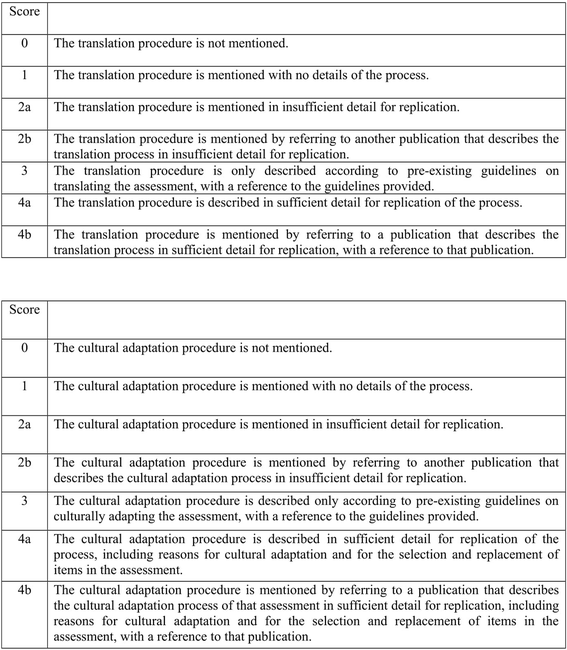Reporting of the translation and cultural adaptation procedures of the Addenbrooke's Cognitive Examination version III (ACE-III) and its predecessors: a systematic review
- PMID: 28903725
- PMCID: PMC5598011
- DOI: 10.1186/s12874-017-0413-6
Reporting of the translation and cultural adaptation procedures of the Addenbrooke's Cognitive Examination version III (ACE-III) and its predecessors: a systematic review
Abstract
Background: The ACE-III, a gold standard for screening cognitive impairment, is restricted by language and culture, with no uniform set of guidelines for its adaptation. To develop guidelines a compilation of all the adaptation procedures undertaken by adapters of the ACE-III and its predecessors is needed.
Methods: We searched EMBASE, Medline and PsychINFO and screened publications from a previous review. We included publications on adapted versions of the ACE-III and its predecessors, extracting translation and cultural adaptation procedures and assessing their quality.
Results: We deemed 32 papers suitable for analysis. 7 translation steps were identified and we determined which items of the ACE-III are culturally dependent.
Conclusions: This review lists all adaptations of the ACE, ACE-R and ACE-III, rates the reporting of their adaptation procedures and summarises adaptation procedures into steps that can be undertaken by adapters.
Keywords: Cognitive assessment; cognitive impairment; cognitive screening test; cultural adaptation; dementia; diagnosis; language; primary care; systematic review; translation.
Conflict of interest statement
Ethics approval and consent to participate
Not Applicable.
Consent for publication
Not Applicable.
Competing interests
The authors declare that they have no competing interests.
Publisher’s Note
Springer Nature remains neutral with regard to jurisdictional claims in published maps and institutional affiliations.
Figures
References
Publication types
MeSH terms
LinkOut - more resources
Full Text Sources
Other Literature Sources
Miscellaneous



